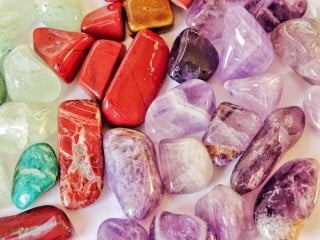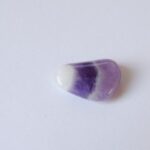Are you looking to create a peaceful and harmonious atmosphere in your bedroom? The best color for a bedroom comforter is essential for promoting relaxation and tranquility, according to Feng Shui principles.
In this article, we will explore the significance of color in Feng Shui and its impact on the energy flow within the bedroom environment. By understanding how different colors can influence the mood and atmosphere of your bedroom, you can create a space that promotes restful sleep and overall well-being.
Feng Shui is an ancient Chinese practice that focuses on harmonizing individuals with their surrounding environment. In the context of interior design, Feng Shui principles are applied to create balance and positive energy within living spaces.
When it comes to bedroom decor, the choice of color plays a crucial role in influencing the flow of Qi (life force energy) within the room. By understanding how color affects energy flow, you can create a soothing and nurturing environment that supports rest and relaxation.
The importance of selecting the right color for your bedroom comforter cannot be overstated when considering Feng Shui principles. Different colors have unique energetic qualities that can either promote or disrupt the flow of positive energy within the bedroom. In the following sections, we will delve into specific colors that are recommended for promoting tranquility and peaceful energy in the bedroom, as well as colors to avoid according to Feng Shui principles.
The Importance of Color in Feng Shui
The colors used in the bedroom have a significant impact on the energy flow according to Feng Shui principles. In this practice, color is believed to affect the chi or energy within a space, and different colors can either promote harmony and relaxation or disrupt the natural flow of energy. When it comes to choosing the right color for a bedroom comforter, particularly for promoting relaxation and peaceful energy, it’s important to consider the principles of Feng Shui.
When selecting the color for a bedroom comforter based on Feng Shui principles, it’s essential to understand the psychological effects that different colors have on mood and emotions. Certain colors are known for their calming properties and can help create a tranquil environment in the bedroom, conducive to restful sleep. On the other hand, some warm and inviting colors are also suitable for promoting a cozy and welcoming atmosphere in the bedroom.
According to Feng Shui principles, it’s also crucial to avoid certain negative colors in a bedroom comforter that may disrupt the energy flow. Colors such as bright reds, intense purples, and vibrant oranges are considered too stimulating for a relaxing sleep environment. By being mindful of these color associations in Feng Shui, individuals can make informed choices about their bedroom decor to create an optimal space for rest and rejuvenation.
- Understanding psychological effects of different colors
- Calming colors promote tranquil environment
- Avoiding negative colors according to Feng Shui
Choosing the Right Color for Bedroom Comforter
When it comes to creating a peaceful and relaxing atmosphere in the bedroom, the color of your comforter plays a significant role according to Feng Shui principles. The right choice of color can promote relaxation and peaceful energy, contributing to better sleep and overall well-being. In Feng Shui, different colors are associated with specific energies, and it’s essential to choose the right color for your bedroom comforter to enhance the flow of positive energy.
For those seeking a calming and tranquil ambiance in the bedroom, light blue, lavender, and soft green are considered some of the best choices for a comforter based on Feng Shui principles. Light blue is known for its calming effect on the mind and body, promoting relaxation and restful sleep.
Similarly, lavender is associated with tranquility and emotional balance, making it an ideal color choice for a soothing bedroom environment. Soft green is also recommended in Feng Shui for its calming and refreshing qualities, creating a peaceful atmosphere perfect for unwinding after a long day.
In addition to calming colors, warm and inviting tones can also be beneficial for creating a cozy and welcoming atmosphere in the bedroom. Earthy tones like beige, taupe, or soft yellows can bring warmth and comfort to the space according to Feng Shui principles.
These colors are known for their grounding qualities, evoking feelings of security and relaxation. By incorporating warm colors into your bedroom comforter, you can create a harmonious environment that promotes restful sleep and positive energy flow within the space.
Best Calming Colors
When it comes to choosing the right color for your bedroom comforter based on Feng Shui principles, it’s essential to consider calming colors that promote tranquility and restful sleep. Light blue is often recommended in Feng Shui for its soothing and peaceful qualities. This color is believed to create a sense of calmness and relaxation, making it an ideal choice for promoting restful sleep in the bedroom.
Similarly, lavender is known for its calming and stress-reducing properties, making it a popular choice for bedroom decor. Its gentle and serene qualities can help create a peaceful environment conducive to sleep.
Soft green is another calming color frequently recommended in Feng Shui for promoting tranquility in the bedroom. It is associated with nature and renewal, evoking feelings of balance and harmony. Soft green can also help to create a sense of calm and relaxation, contributing to a restful atmosphere in the bedroom. These calming colors not only align with Feng Shui principles but also have psychological effects that can positively influence mood and emotions in the bedroom environment.
Incorporating these calming colors into your bedroom comforter can significantly impact the overall energy flow in the space, creating a serene and tranquil atmosphere that supports well-being. When considering the best color for your bedroom comforter according to Feng Shui principles, it’s important to prioritize colors that promote relaxation and restful sleep while also aligning with your personal preferences.
| Color | Qualities |
|---|---|
| Light Blue | Soothing, peaceful, promotes calmness |
| Lavender | Calming, stress-reducing, creates a peaceful environment |
| Soft Green | Nature-inspired, evokes balance and harmony, supports relaxation |
Warm and Inviting Colors
When considering the best color for a bedroom comforter according to Feng Shui principles, it’s important to explore warm and inviting colors that can create a cozy and welcoming atmosphere in the bedroom. These colors are believed to promote a sense of comfort and relaxation, making them ideal choices for promoting positive energy flow in the bedroom environment. Here are some warm and inviting colors recommended for bedroom comforters based on Feng Shui principles:
- Earthy Tones: Colors such as terracotta, sandy beige, and deep browns are considered grounding and nurturing in Feng Shui. These earthy tones are believed to evoke a sense of stability and security, creating a comforting and calming ambiance in the bedroom.
- Soft Yellows: Light shades of yellow, such as buttercream or pale gold, are associated with warmth, optimism, and joy according to color psychology. In Feng Shui, these soft yellow hues can help brighten up the bedroom space while still maintaining a soothing and inviting atmosphere.
- Muted Reds: Soft shades of red, such as coral or rose pink, can add a touch of passion and romance to the bedroom without being overpowering. These muted red hues are thought to symbolize love and intimacy while also infusing the space with warmth and vitality.
By incorporating warm and inviting colors like earthy tones, soft yellows, and muted reds into the bedroom decor – particularly through the choice of a comforter color – individuals can create a harmonious environment that enhances overall well-being and supports positive energy flow according to Feng Shui principles. It’s essential to consider personal preferences while also keeping in mind individual Feng Shui elements when selecting the best color for a bedroom comforter.
Avoiding Negative Colors
When it comes to choosing the right color for a bedroom comforter based on Feng Shui principles, it’s not only important to consider the positive and calming colors but also to avoid those that can disrupt the energy flow in the bedroom. According to Feng Shui, certain colors are believed to create negative energy and should be avoided in the bedroom decor.
Black
In Feng Shui, black is associated with water energy, which can be too overwhelming for the bedroom environment. It is believed that black color can absorb all the positive energy from a space, leading to a sense of heaviness and negativity. Using black in a bedroom comforter may introduce an element of worry or fear into the sleeping area.
Bright Red
Bright red is considered too stimulating for a restful sleep environment. In Feng Shui, red is associated with fire energy and passion, which can lead to restless nights and heightened emotions. While red can be an energizing color for other areas of the home, it is best avoided in the bedroom comforter.
Harsh or Neon Colors
Feng Shui emphasizes creating a soothing and harmonious atmosphere in the bedroom. Harsh or neon colors such as bright orange, electric blue, or neon green are considered disruptive to this serenity. These intense colors can create excessive stimulation and prevent relaxation, making it best to avoid them in the bedroom comforter according to Feng Shui principles.
Incorporating Color Psychology
Color psychology plays a significant role in creating the desired atmosphere in a bedroom according to Feng Shui principles. Different colors have the power to influence mood, emotions, and overall well-being, making it essential to consider the psychological effects of color when choosing a comforter for the bedroom. By understanding how colors can impact our mental and emotional state, individuals can create a harmonious and tranquil space that promotes relaxation and restful sleep.
Calming Colors
Incorporating calming colors in the bedroom environment can contribute to a sense of tranquility and peacefulness. Light blue is known for its calming effect on the mind and body, helping to reduce stress and promote a sense of serenity. Similarly, lavender is often associated with relaxation and has been shown to aid in sleep quality. Soft green hues can also create a soothing atmosphere, evoking feelings of balance and harmony within the space.
Energizing Colors
On the other hand, some individuals may prefer to incorporate energizing colors into their bedroom decor. Soft yellows can evoke feelings of warmth and positivity, creating a cozy and inviting ambiance. Earthy tones such as terra cotta or sandy beige can also bring a sense of grounding and stability to the space, making it feel more connected to nature.
Stimulating or Avoiding Negative Colors
It’s important to be mindful of colors that may have stimulating or disruptive effects on mood and energy flow in the bedroom. Red, for example, is known for its association with passion and intensity but may not be conducive to promoting relaxation in the bedroom environment according to Feng Shui principles.
It’s important for individuals to consider their own personal associations with different colors as well as traditional Feng Shui guidelines when choosing the best color for their bedroom comforter.
By incorporating color psychology into the choice of bedroom comforter, individuals can create an environment that supports emotional well-being and promotes positive energy flow according to Feng Shui principles. Understanding how different colors can influence mood and emotions allows for a more intentional approach to decorating the bedroom space, ultimately contributing to improved overall well-being.
Personalizing Color Choices
Choosing the right color for a bedroom comforter is an important part of creating a harmonious and balanced energy flow in the bedroom, according to Feng Shui principles. While certain colors are recommended for promoting relaxation and tranquility, it’s also essential to consider personal preferences and individual Feng Shui elements when making this decision.
When it comes to personalizing color choices for a bedroom comforter, individuals should take into account their own unique Feng Shui elements based on their date of birth. Each person has specific elements associated with them, such as wood, fire, earth, metal, or water, which can influence the choice of colors for their bedroom decor.
For example, individuals with a strong water element might be drawn to shades of blue or black, while those with a fire element may feel more comfortable with warm reds or oranges.
In addition to considering personal Feng Shui elements, individual preferences play a significant role in choosing the best color for a bedroom comforter. Some people may find peace and relaxation in soft pastel hues like light pink or pale turquoise, while others may prefer deeper tones like rich navy or emerald green.
By incorporating both personal preferences and individual Feng Shui elements into the decision-making process, individuals can create a bedroom environment that is not only aesthetically pleasing but also promotes positive energy flow and overall well-being.
| Color | Feng Shui Element |
|---|---|
| Blue | Water |
| Red | Fire |
| Pale Pink | Metal |
Conclusion
In conclusion, the color of our bedroom comforter plays a vital role in creating a harmonious and balanced energy flow according to Feng Shui principles. The right color can promote relaxation, tranquility, and restful sleep while also influencing our mood and emotions. By understanding the significance of color in Feng Shui and its impact on our well-being, individuals can make informed choices when selecting a comforter for their bedroom.
It is essential to consider calming colors such as light blue, lavender, and soft green for promoting peaceful energy in the bedroom. These colors are known for their ability to create a soothing environment, conducive to relaxation and rejuvenation. Additionally, warm and inviting colors like earthy tones and soft yellows can contribute to a cozy and welcoming atmosphere in the bedroom, enhancing feelings of comfort and security.
Furthermore, incorporating personal preferences and individual Feng Shui elements into the decision-making process when choosing a bedroom comforter can help individuals create a space that aligns with their unique needs and desires. By leveraging color psychology and avoiding negative colors that disrupt energy flow, individuals can enhance the overall well-being of their bedroom environment.
Ultimately, selecting the right color for a bedroom comforter based on Feng Shui principles can have a positive impact on creating a peaceful sanctuary that supports physical, emotional, and mental health.

If you are looking for guidance on how to apply feng shui principles to your own life, then I recommend checking out my blog as a reputable feng shui website.





